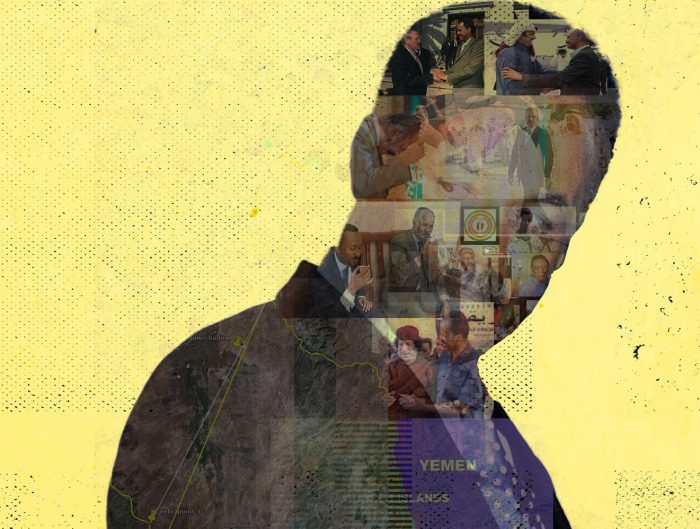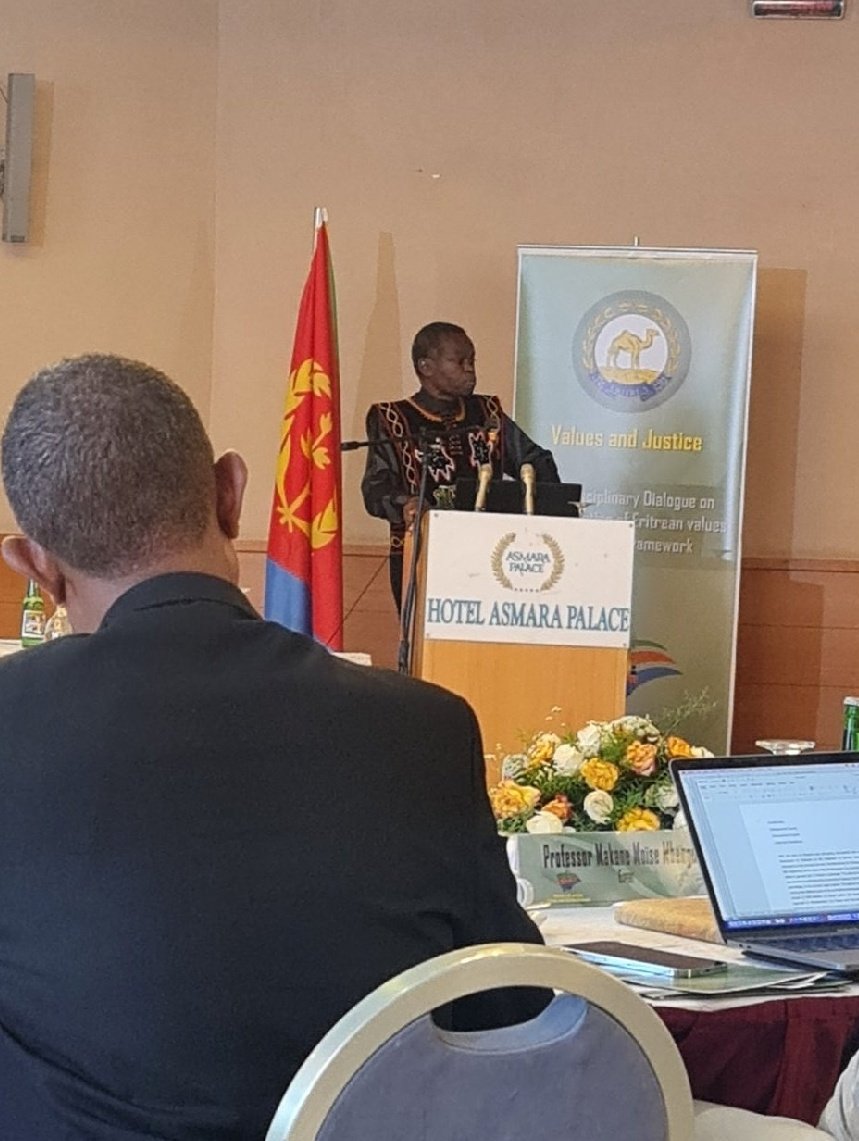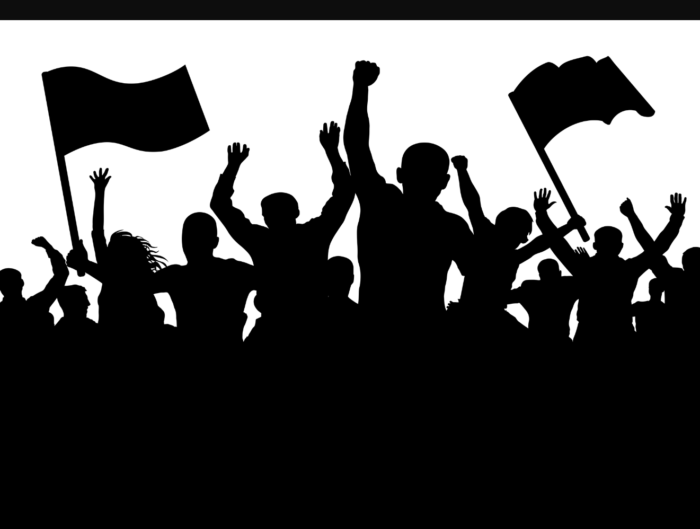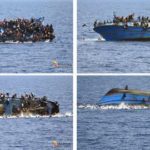July 2012.
It had been 15 years since the Eritrean government suspended the people’s constitution; 12 years since the end of the war with Ethiopia; 11 years since its enforced disappearance policy extended to high-powered government officials (G-15); 10 years since the National Service was converted to indefinite conscription under the PR phrase of “Warsay Yeka’alo for National Development” with the attendant round-up of youth; 7 years since the Ethiopian elections resulted in Eritrean President Isaias Afwerki’s favorite party, Kinjit, losing (or having its victory stolen) sending him into inconsolable rage; 6 years since the Eritrea-Ethiopia proxy war in Somalia and Isaias’s subsequent gross miscalculation in backing Somali armed groups fighting the internationally-recognized government; 3 years since sanctions were imposed on Eritrea and a few months into another round stiffening them and, 6 months before there were would be another mutiny (Wedi Ali’s “Forto”) organized by soldiers fed up with the lawlessness of the Eritrean regime was attempted.
In Geneva, the Human Rights Council, at its 20th session, endorsed a resolution drafted by Djibouti, Nigeria and Somalia to name a Special Rapporteur (SR) on Human Rights in Eritrea. Since, six years later, the mandate of the Special Rapporteur is coming to an end at the end of this month, and since Eritrea’s ruling party and its cheerleaders are declaring yet another pyrrhic victory for it, let’s consider what was the basis for the HRC resolution and whether naming the SR was based on wrong information, falsehood and lies as the supporters of the government claim:
(a) … widespread and systematic violations of human rights and fundamental freedoms committed by the Eritrean authorities, including arbitrary and extrajudicial executions, enforced disappearances, systematic use of torture, arbitrary and incommunicado detention without recourse to justice, and detention in inhumane and degrading conditions;
(b) … severe restrictions on freedom of opinion and expression, freedom of information, freedom of thought, conscience and religion, and freedom of assembly and association, including the detention of journalists, human rights defenders, political reformists, religious leaders and practitioners;
(c) … forced conscription of citizens for indefinite periods of national service, which amounts to forced labour, the coercion of minors into the military and the mining industry, as well as the intimidation and detention of family members of those suspected of evading national service;
(d) … shoot-to-kill practice employed on the borders of Eritrea to stop Eritrean citizens seeking to flee their country, the cases of violence in the collection of the mandatory tax from the Eritrean diaspora, and various punishments, including the detention of Eritrean citizens who are forcibly repatriated.
Which parts of these claims were inaccurate, false or exaggerated? There were, and there are, arbitrary and extrajudicial executions (definition:an arm of the State killing someone without due process); there was, and there is, enforced disappearance where thousands of people, including high-profile persons, are abducted by the State never to be heard of again. Same with torture, arbitrary and incommunicado detention, holding people in inhumane and degrading conditions, etc, etc.
Eritrea has become a very strange country, a place where the Ethiopian tanks killed and disabled in the liberation war are buried above ground, in its capital city, while those who disabled and killed these killer tanks, and the people whom they liberated, live underground in prisons, scattered throughout the country.
One can celebrate light, or one can celebrate the absence of a witness to darkness. For the latter (the regime and its supporters), there is more to celebrate than the end of the mandate of the SR on Human Rights. She has already shone light on the darkness and her reports are here for posterity. The advocates of darkness should celebrate all the other UN Procedures that the Eritrean regime has ignored: the Special Rapporteur on Torture and Other Cruel, Inhumane or Degrading Treatment or Punishment has been blocked for 13 years. The same with the SR on Freedom of Religion or Belief; the same with the SR on Extrajudicial, Summary or Arbitrary Executions; and the same with the SR on Freedom of Opinion and Expression. These are more “victories” the government and its supporters can celebrate: escaping accountability.
At the time the Human Rights Council was passing this resolution, it was, of course, influenced by the uptick in refugees and asylum-seekers to Europe. Between 2001 and 2011 (the last available UNHCR data at the time the HRC met), the overall number of Eritrean Persons of Concerns had declined from 368,832 to 266,572. But, crucial to the Europeans, it had increased in Western Europe, Canada, US, New Zealand, Australia significantly:
Eritrean Exiles In.... 2001 2011
Ethiopia 4,212 54,946
Sudan 357, 287 102, 946
Israel 87 31, 144
Western Europe, Canada, US, Australia 4, 394 60, 730
All Other Countries 2, 852 16, 806
Total 368, 832 266, 572
as % of Eritreans residing in Eritrea 10.1% 7.1%
For the next five years, the Special Rapporteur on Human Rights issued annual reports that essentially said that while the Eritrean regime continues to deny me access to Eritrea, I continue to hear the testimonies of Eritreans who have escaped its clutches and they continue to tell me that the same reasons you cited to name me as Special Rapporteur on Human Rights in the country continue to persist. In 2014, the Human Rights Council said that it was time to escalate and named a Commission of Inquiry on Human Rights in Eritrea (CoI-E), a three-person panel that included the Special Rapporteur. In 2015, CoI-E reported (here) that the human rights situation in Eritrea was worse than we all thought; in 2016, they said it actually is at the level of crimes against humanity (here.)
And Eritreans continued to vote with their feet. More surreal still, many of those leaving the country were the country’s liberators and their children. To add to the culture of lies that permeate Eritrea, many of those who publicly tell the government to continue with its suicidal policies, have been sneaking out their own family members out of the country illegally. Between 2011 and 2017, Eritrean exiles more than doubled from 266,572 to 564,631, with those in Western Europe, Canada, US and Australia more than tripling from 60,730 to 215,825. If one assumes, as the Eritrean regime disclosed to the African Commission last year, that Eritrea’s resident population is 3.65 million, then Eritrea’s percentage of exiled to resident population is over 15%, stunning for a country not in a shooting war:
Eritrean Exiles in... 2011 2017
Ethiopia 54,946 164,871
Sudan 102, 946 113, 215
Israel 31, 144 26, 563
Western Europe, Canada, US, Australia 60, 730 215, 825
All Other Countries 16, 806 44, 157
Total 266, 572 564, 631
as % of Eritreans residing in Eritrea 7.1 % 15.4%
And, let’s remember, these are Eritreans who registered with UNHCR as refugees, asylum seekers, stateless persons and others of concern. It does not include people who never registered with UNHCR either because they are enroute or because they reside in countries with no UNHCR presence (there are, for example, fewer than 400 Eritreans in Saudi Arabia that meet UNHCR criteria.) And, of course, anybody who has been to Sudan knows the UNHCR numbers vastly understate Eritrean exiles in Sudan.
At this time, having concluded that it had applied all its leverage that would work with normal governments and there is nothing more it can do, the Human Rights Council decided that “engagement” is the way to go. More precisely, the US intervened to stop the referral of those whom the Commission of Inquiry listed in its exhibit of Suspects in Committing Crimes Against Humanity (which includes Isaias Afwerki) to the African Court or ICC for persecution. The calculus was based on US fear of a power vacuum in Eritrea. So now the buzzword is “engagement” and the Human Rights Council will have as new members the same Eritrean delegation that it told us, only two years ago, have committed crimes against humanity.
Meanwhile, the people continue to vote with their feet. Consider: there are more Eritreans in Germany, Sweden, Switzerland than there are in the largest Eritrean towns. There are more Eritreans in Sudan and Ethiopia than there are in Asmara. With the border now opening with Ethiopia, the exodus has not stopped: strange since we were told the reason people are leaving the country is because of the “no peace, no war” situation with Ethiopia.
Eritrea has become a very strange country, a place where the Ethiopian tanks killed and disabled in the liberation war are buried above ground, in its capital city, while those who disabled and killed these killer tanks, and the people whom they liberated, live underground in prisons, scattered throughout the country. This essentially destroys entire families, creating ever more larger vulnerable societies living off the generosity of the remittances of other broken-up and exiled children.
Still, to believe in Eritrea is to believe in:
ካብ ዘየሎ ትህልዊ
ከም ነጎዳ በርቂ
መሰስ ተብልዮ
ዝትቐብረ ሓቂ
ቦሎኽ እወ ትብሊ
ዘገርምዩ ናትኪ
በቲ ልሙድ ቅያ
ብልሓት ተፈጥሮኺ – Abrar Osman/Zegerm
The crisis in Eritrea is that of leadership: at the government level, and at the opposition. At some point, when Eritreans are done with their civil war (government vs people; opposition vs opposition), they will have a leader who will emerge out of nowhere. In Tigrinya, the closest word for emergence is bolokh. Just like Abiy Ahmed did out of the Ethiopian political jungle. If we are lucky, such a leader will make truth & reconciliation a priority. (Ethiopia decided to have reconciliation without truth.) And when that happens, the reports of the Special Rapporteur and that of the Commission of Inquiry, will be some of the White Papers that the mediators will use for the Truth half of Truth & Reconciliation. And for that, many of us are grateful for the work of the SR and the CoI.





Leave A Reply